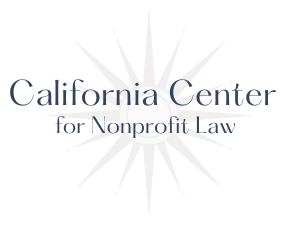
The Budget Reconciliation Bill: Implications for Charitable Organizations
H.R. 1, the federal budget reconciliation bill, has passed both the Senate and the House by a narrow margin. The so-called “One Big Beautiful Bill” is likely to result in significant changes for charitable organizations in various areas. What follows are some potential changes that may have implications for charities.
Increased Excise Taxes on Net Investment Income of Private Foundations
The federal government currently levies a 1.39% tax on the net investment income of private foundations. The House version of the bill increased this tax at tiered rates depending on the amount of assets the foundation holds. The increase would have applied only to private foundations with assets over $50 million and could reach a top rate of 10% for private foundations with assets over $5 billion. However, H.R. 1 does NOT contain this provision.
Increased Excise Taxes on Investment Income of Colleges and Universities
Excise tax on the net investment income of colleges and universities is a flat 1.4% for private colleges and universities that have at least 500 students paying tuition and an endowment asset minimum of $500,000 per student. The tax bill changes the excise tax rate to tiered rates of 1.4%, 4%, and 8%, based on the entity’s level of endowment assets per student. Rates will increase for endowments of more than $750,000 per student. The highest excise tax rate is reserved for schools with endowments of more than $2 million per student. This type of tax increase could reduce student aid, diminish the ability to attract talent, eliminate certain programs, and limit scientific research at affected colleges and universities.
Schools with less than 3,000 paying students in the previous tax year would not be subject to the excise tax. However, the bill contains no exemption for “qualified religious institutions.”
Unrelated Business Income Tax Changes
Currently, a tax-exempt organization’s expenses for qualified transportation fringe benefits, such as employee parking, are not included in its unrelated business income (UBI), which is taxable. The House version of the bill would have identified such costs as UBI, which generally would be subject to a corporate tax rate of 21%, except for “churches” or certain “church-affiliated organizations.” However, H.R. 1 does NOT contain this provision.
Charitable Deductions
At present, only about 10% of taxpayers who itemize their deductions on their federal income tax returns (instead of taking the standard deduction) benefit from the charitable deduction. The tax bill further extends and increases the standard deduction, which typically has the effect of decreasing charitable donations. It also imposes a 0.5% floor on the charitable deduction for individuals, which effectively reduces their charitable contributions for the year by 0.5%.
However, the tax bill also contains a temporary charitable deduction for taxpayers who do not itemize their deductions, capped at $150 for single filers and $300 for married joint filers.
Additionally, the bill establishes a 1% floor on corporate charitable tax deductions, meaning that a corporation’s aggregate contributions must exceed 1% of its taxable income.
Excise Tax on Significant Compensation
Under H.R. 1, the 21% excise tax on significant compensation paid to the five highest-compensated employees of a tax-exempt organization expands to impact all employees of the organization, as well as any related person or governmental entity. This provision could further limit compensation for employees at charitable organizations, which already tends to be significantly lower than at private companies and increase operating costs for nonprofits.
Frequently Asked Questions (FAQ)
When would the provisions in the tax bill take effect?
While the effective dates vary, none would take effect until after 2025. For example, excise tax changes would affect only tax years after December 31, 2025.
Are any colleges or universities exempt from the excise tax increases?
Public colleges and universities continue to be exempt from excise tax and the increases. Although the House’s version of the bill contained an exemption for “qualified religious institutions,” H.R. 1 does NOT contain this provision.
Does the tax bill contain other provisions that might indirectly affect charities?
Significant cuts to Medicaid and SNAP (food stamps) could indirectly affect nonprofits by expanding the need and demand for their services. According to the Congressional Budget Office (CBO), 13.7 million people may lose Medicaid coverage, and 11 million may face reduced SNAP benefits, which could easily overwhelm charities serving low-income communities.
Contact Us Today for Legal Advice Regarding the Budget Reconciliation Bill
The California Center for Nonprofit Law concentrates its practice on legal matters that affect churches, charities, and other nonprofit organizations in California. Our unique focus enables us to stay ahead of evolving local, state, and federal laws and policies as they develop over time. We are here to represent the interests of your nonprofit organization throughout every stage of your legal matter. Contact us at (949) 892-1221, email us at info@NPOlawyers.com, or complete our online contact form to schedule a consultation about your nonprofit organization today.
